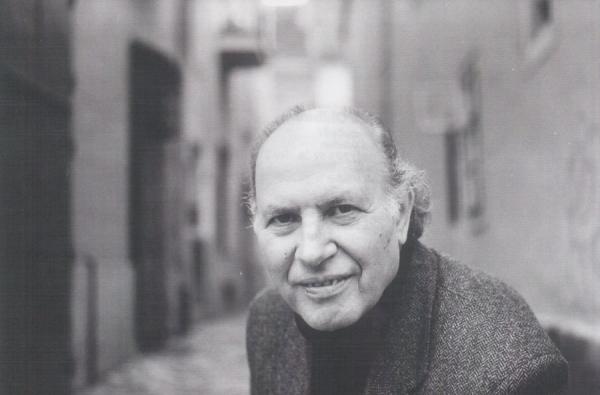A traveling exhibition entitled “The Unknown Imre Kertész – Student Years 1934-1955” visits Debrecen. The exhibition organized by the Imre Kertész Institute focuses on the author’s student years, on the experiences that also determine the later direction and choice of topics of his creative career.
The exhibition not only aims to draw attention to the hidden layers of the oeuvre but, true to the chosen title, accompanies the stages of this early period of life with truly hitherto unknown photographs and mostly unpublished details. The exhibition, which runs until October 30th, also evokes a memory of the writer’s former papal visit.

Imre Kertész was born on November 9, 1929, in Budapest. On June 30, 1944, as a result of a gendarmerie coup near Budapest, he was deported to Auschwitz at the age of fourteen. He was detained in several concentration camps, and then returned to Hungary in 1945 after the liberation of the camps. He then supported himself with journalism and physical work. He had no higher education.
From his writing created between 1955 and 1960, the first novel, Fatelessness, written between the years of 1960 to 1973. The success the novel brought and the fact that he could make a living from his work as a writer and translator supported him through the second half of the eighties, and then up until the change of regime in Hungary.
His first novel had a great impact, even in the year of its publication, but in reality, it was not until the eighties and nineties that critiques emerged that classified it as the canon of Hungarian literary postmodernity.
The criticism leveled towards Novels and autobiographical books are typically based on the mimesis principle, and others, refuting such criticism refer to those same works as linguistically structured works of art. The main problem of Imre Kertész’s writings – in the light of the interpretations thus far – is the freedom of the man of totalitarianism. Auschwitz, and indeed the indivisibility of history, means: “it does not allow the horizon of the experience“ beyond Auschwitz ”to prevail” (Péter Szirák) – the central nature of the problem is indicated by the capitalization of the word Holocaust in The Exiled Language (2001).
Equally important is the incompatibility of the ways of thinking represented by the people appearing in the writings, the different linguistic worlds.
He wrote the screenplay from his novel Fatelessness, and Lajos Koltai directed an extremely popular film, which received a mixed critical reception.
He has had great success in the German-speaking world, his collected works are published by Rowohlt, published in English by Random House, and today at least one of his books has been translated into every major language in the world – Fatelessness can be read in Hindi and Arabic.
During his significant work as a translator, Imre Kertész translated the writings of Elias Canetti, Sigmund Freud, Hugo von Hoffmannstahl, Friedrich Nietzsche, Joseph Roth, Arthur Schnitzler, Ludwig Wittgenstein, as well as modern German and Austrian authors into Hungarian.
He has been a member of the Deutsche Akademie für Sprache und Dichtung in Darmstadt since 1998, and of the German Order of Honor (Pour le Mérite) since 2001. He was awarded the Herder Prize in May 2000 and the Die Welt Literary Prize in November. On October 10, 2002, he was awarded the first Hungarian Nobel Prize in Literature.
In 2002 he became an honorary citizen of Budapest. On March 10, 2005, he was inaugurated as an honorary doctor of the Sorbonne. In 2007 he was the Ambassador of Hungarian Culture. He has been a member of the Széchenyi Academy of Literature and Art since 2009.
He died in Budapest on March 31, 2016, after a long illness.

Source of biography: Petőfi Literary Museum
The exhibition entitled “The Unknown Imre Kertész – Student Years 1934-1955” can be viewed in the Nagyerdei Water Tower between September 29 and October 30, 2020.